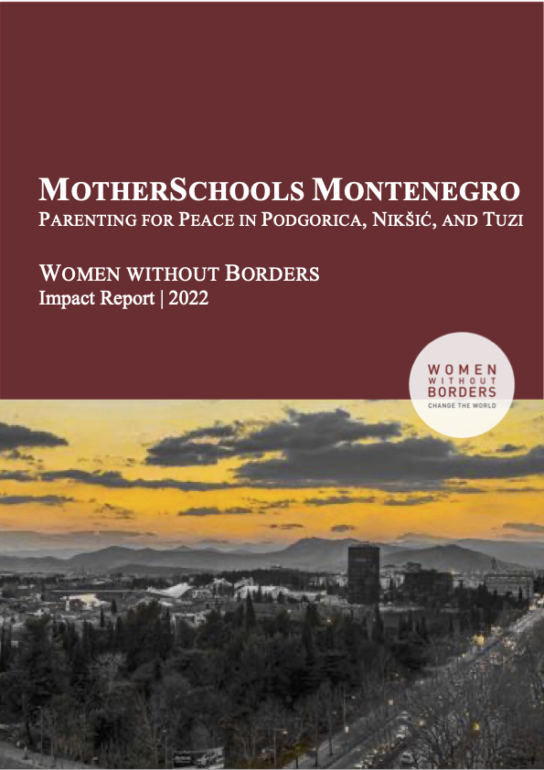In the wake of the civil wars that swept across the MENA region in 2011, Jordan saw a number of foreign fighters join the conflict in Syria. Extremist ideologies were also gaining more traction within the country, especially among young people. The problem tended to be dealt with through disciplinary approaches to parenting and severe anti-terror legislation, which only added to the climate of fear and shame that made parents less eager to discuss radicalisation and violent extremism with their child ren. MotherSchools Jordan engaged 47 mothers in the communities of Salt, Russeifa, and Ma’an. This Women without Borders (WwB) Parenting for Peace programme addressed the communication gap in families by increasing mothers’ awareness of their own ability to intervene in their children’s lives, the importance of communicating clearly within the family, and the possibility of approaching parenting from a new angle that supports children’s development into independent adults.
Despite turmoil in neighbouring countries like Israel, Syria, and Iraq, the middle eastern country of Jordan has remained peaceful and relatively stable. Yet economic inequality, nearby violent conflict, and the increasing isolation of young people and the working classes contributed to a rise in radicalisation and extremist views. Ranking among the countries with the highest number of ISIS recruits, Jordan has been far from immune to the issue of foreign fighters. Islamist recruiters have also capitalised on the presence of a large refugee community. While counter-terrorism initiatives centre on legislation that carries hefty punishments for suspects and convicted terrorists, little has been done to address the underlying social causes of violent extremism. This has resulted in a climate of fear in which authority figures such as parents and religious leaders do not discuss religious interpretations and extremism with young people for fear of being questioned by the authorities. The rise of extremist ideologies in Jordan has also led to a renewed adherence to patriarchal ideals and rigid gender roles. These perpetuate violence against women and diminish their influence in the public sphere.
Against this background and in an effort to empower women in affected communities across Jordan to take security into their own hands, Women without Borders brought its ‘MotherSchools: Parenting for Peace’ Model to the towns of Salt, Russeifa, and Ma’an. WwB rolled out its programme in cooperation with local implementing partner Al Amman and with the support of Mercy Corps. A total of 6 teachers, 3 notetakers and 47 mothers completed the programme, which was launched in late 2017. Ahead the launch, participants were asked to reflect on their role in the family and the community, family dynamics in general, and the potential threat of violent extremism in their areas. A pattern of observations and concerns emerged, which indicated that mothers were shouldering the burden of domestic work and childcare but had little authority within the private and public spheres. They described an approach to parenting, promoted by their husbands and themselves, based on discipline and obedience, rather than communication and affection. Many mothers were worried about the risk of radicalisation but said that they did not know how to address the topic with their children, choosing instead to avoid it all together by for example changing the channel when news about the war in Syria appeared on television.
After the focused discussions over the course of the programme, parenting workshops, and confidence building exercises, the participants graduated from the MotherSchools at a ceremony in the capital of Amman. Following the completion of the programme, they reported better relationships with their children, more open communication with their husbands, and increased status within the community. The participants overwhelmingly said that they found the MotherSchools helpful as a tool for addressing extremism, with one mother purportedly disrupting a planned terrorist attack when she noticed the warning signs of radicalisation in a neighbour. The mother found for the most part that they had managed to build more loving and open relationships within the home. In the spirit of the global MotherSchools community movement, the women expressed their enthusiasm for staying in contact with one another: maintaining and building on the network that had been established in the course of the programme. This is the key to the MotherSchools Model: establishing mutual trust and support within each group so that participants are not merely students in a classroom; but rather that they become active participants of a more peaceful and resilient community.

